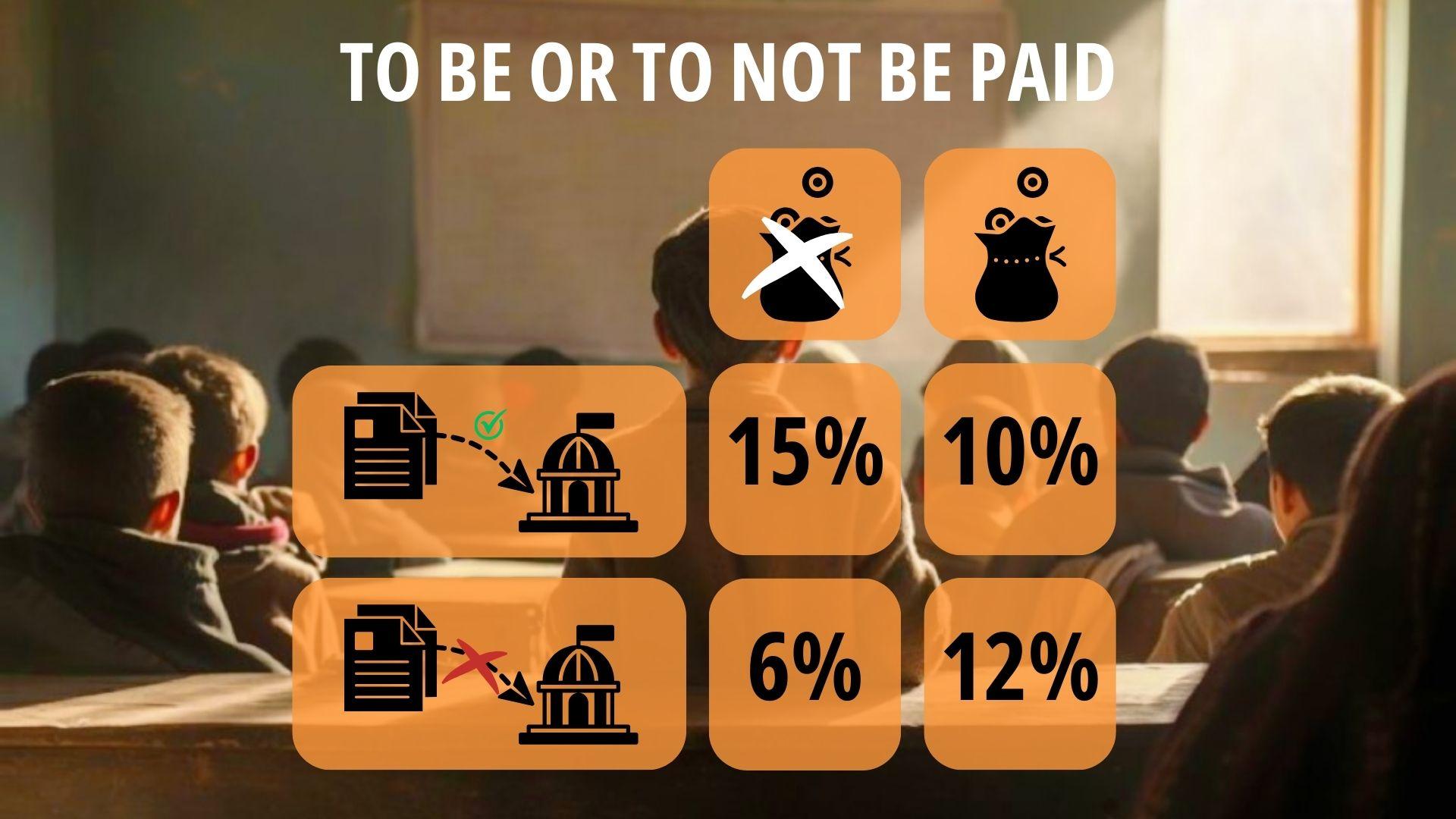
Never for Money! When You Should Not Reward Whistleblowers
The use of whistleblowing to challenge teacher absence in the developing world is worthconsidering, but its effectiveness can be dampened by offering monetary rewards for reporting absent colleagues, according to a field experiment conducted by Stefano Fiorin (Bocconi Laboratory for Effective Anti-Poverty Policies and Department of Economics) with the collaboration of the Afghan Ministry of Education. "Moral aversion to being paid for harming others can reverse the effect of financial incentives," explains Fiorin in the fourth video of the LEAP Talks series.
"When people are able to get quality education they can break from the cycle of poverty," the UN states in the webpage dedicated to "Quality Education", the fourth of the 17 UN Sustainable Development Goals. Fiorin's research in Afghanistan focuses on certain prerequisites for quality education, which cannot be taken for granted in developing countries.
"One of these prerequisites is that teachers show up in the classroom," he says. "Sometimes, they do not because they simply don't exist. In places where the State lacks a strong presence in non-urban areas, ghost teachers, i.e. fake profiles built only to collect salaries, are a common feature." In a working paper, Fiorin evaluated an Afghan government policy which shifted State employee salary payments from cash to a mobile money platform, requiring employees to provide fingerprint-based biometric identification. In short, the reform turned out to have other positive effects but did not eliminate all payments to ghost workers.
A second reason for teachers not showing up in the classroom is absence, the phenomenon addressed by Fiorin in the whistleblowing study published by the Journal of the European Economic Association.
The study was conducted in schools distributed across three different provinces (Kandahar, Nangarhar, and Parwan). Unannounced audit visits conducted in a random sample of schools across the region a few months ahead of the experiment found about 18% of employees absent from work, a percentage in line with observations around the developing world.
In the experiment, conducted before the Taliban takeover of August 2021, 2,040 employees from 151 schools were asked to complete a confidential phone survey on the attendance of their colleagues. The sample was randomized along two dimensions: whether or not reporting absence carries a monetary incentive and whether or not the report could be passed to the Ministry, possibly leading to punishment for the absentee.
Fiorin found that whistleblowing can be worth considering. "Some public servants are willing to battle widespread absence by reporting their peers' wrongdoing, with no need of reward," he says. In fact, 15% of the participants in the "possible punishment" condition denounced at least one case of absence at their school in the week preceding the experiment. In half of the schools, there is at least one employee who reports, despite the belief (shared by 75% of the sample) that they might face problems if they report a case of absence.
In the same "possible punishment condition", though, monetary incentives backfire. The share of employees reporting cases of recent absence falls to 10%.
When whistleblowers know that their report won't have consequences, the rate of reporting is lower (6%) but monetary incentives are effective, raising reporting to 12%.
Percentage of teachers who report a colleague's absence. Infographic by Weiwei Chen
Overall, these findings suggest that teachers share the government's goal of reducing widespread absence and are willing to act by denouncing their colleagues. However, they are averse to violating a moral norm against being paid for harming others.
In the paper's conclusion, though, Fiorin highlighted a n important possible drawback of introducing a whistleblower policy in schools. Schools can be considered communities whose functioning is largely based on trust and, he wrote, "the introduction of a monitoring system could also create an environment of distrust between colleagues, which could be detrimental to the overall functioning of the schools and could spill over to the tight-knit communities in which these schools operate."



Stefano Fiorin, "Reporting Peers' Wrongdoing: Experimental Evidence on the Effect of Financial Incentives on Morally Controversial Behavior." Journal of the European Economic Association, Volume 21, Issue 3, June 2023, Pages 1033–1071, https://doi.org/10.1093/jeea/jvad002.
Don't Pay Me for This!
